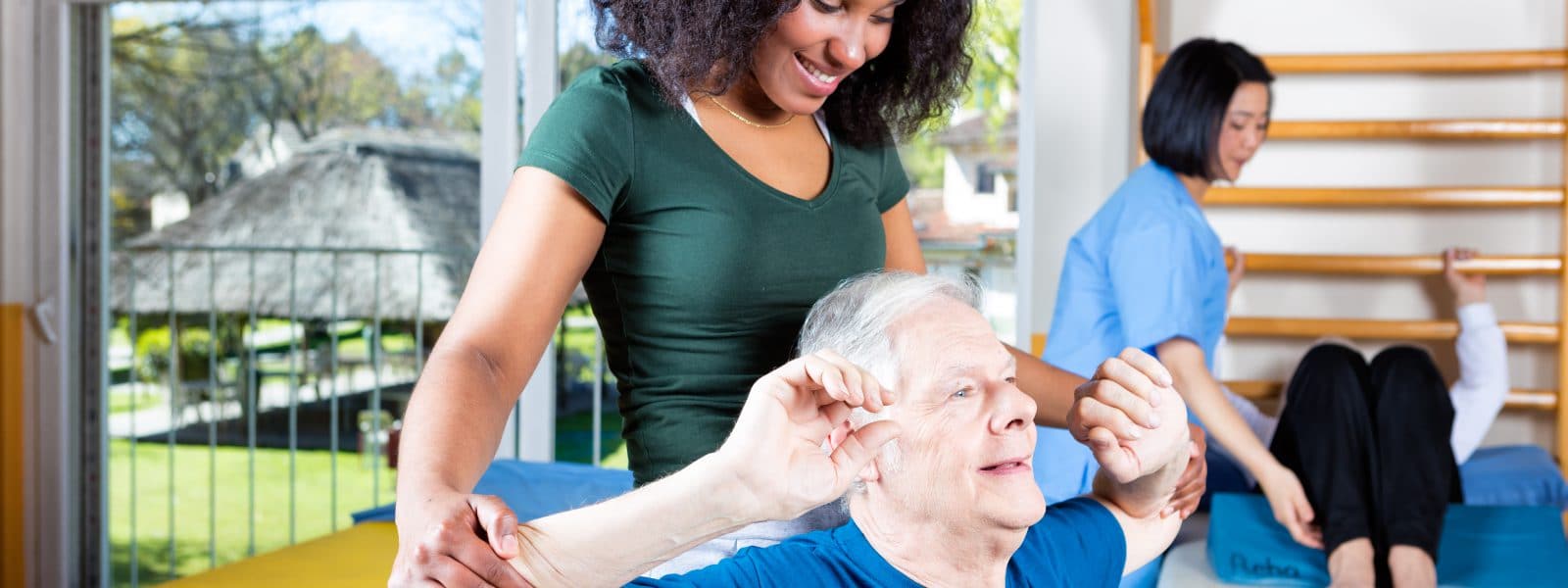Everyone Loves a Parade and Other Lessons from the COVID Pandemic

Long-term care facilities have been, in many ways, more acutely impacted by the COVID-19 pandemic than any other type of institution. Few other industries have such direct responsibility for the most vulnerable members of our society.
The COVID-19 pandemic has been a learning experience for all of us. In fact, just about every day, we’ve learned something new about the virus, how to treat or prevent it, and how our health care systems and organizations need to function to keep people safe and comfortable during a crisis such as this.
Here are some of the top lessons we’ve learned from the pandemic:
- It is important to never underestimate the potential of a pandemic or outbreak as it evolves. Physiatrists and other practitioners such as those at Community Physicians (CP) are dedicated to providing the best possible care for patients at all times. This includes during a crisis such as the COVID pandemic. It means that we have to do whatever is necessary to protect people. Recommendations for safety measures such as mask wearing or social distancing are designed to prevent – as much as possible – the spread of bacteria and contaminants. These efforts may seem overly cautious or inconvenient, but they are consistent with expert guidance and clinical evidence.
- Science matters. At CP, our physiatrists and other team members always follow good, ethically sound, clinically based medicine. At the same time, we don’t know it all. We have to stay open, read and study voraciously, talk with the experts and our colleagues, and be flexible enough to change recommendations, guidelines, and policies based on new data and evidence as it evolves.
- People are resilient and creative. From people and pet parades to outside concerts and performances and more, facilities, families, and others have been creative about providing social engagement and interactions. At the same time, our CP team has been inventive about ways to provide care and rehab when traditional in-person visits are neither safe nor practical (see Crystal Ball Is Cloudy, But Our Future Vision Is Clear).
- Trust has to be earned. Particularly when new information about COVID-19 was changing and evolving almost daily and patients and families were getting information from sources both reliable and questionable, trust and transparency have emerged as more important than ever. At CP, we have compassionate, excellent concierge patient care as a core value. We focus on care planning that involves individual wishes and goals, and we’re committed to individualized patient/family communication and education. This means listening, understanding people’s perspectives, and meeting them where they are for productive, respectful, and trusting communications.
- A little kindness goes a long way. From New York City residents going to their windows every night to cheer health care workers and 24/7 caregiver command centers where families and others can call if they need help to the donation of tablets so patients can communicate with their families, we have seen so much kindness and generosity during the pandemic. Additionally, there are numerous examples of heroism and great compassion in hospitals and post-acute/long-term care facilities. We’ve all be inspired to use our greatest strengths and partner with those who share our passion for quality care and the best possible outcomes for all our patients.
- Technology is here to stay. Telemedicine has emerged as an essential tool in the last year. It’s enabled physiatrist like us and others to continue providing care while keeping residents safe. It’s made the best use of limited resources, and it’s given residents some much needed –and very welcome—social interaction (see Lights. Camera, Care: Telemedicine Gets High Ratings).
We continue to learn about COVID-19 every day, including facts and data about the vaccine. We will continue to share updates and information with you. In the meantime, contact us if you have questions or want to connect with our physiatrists.